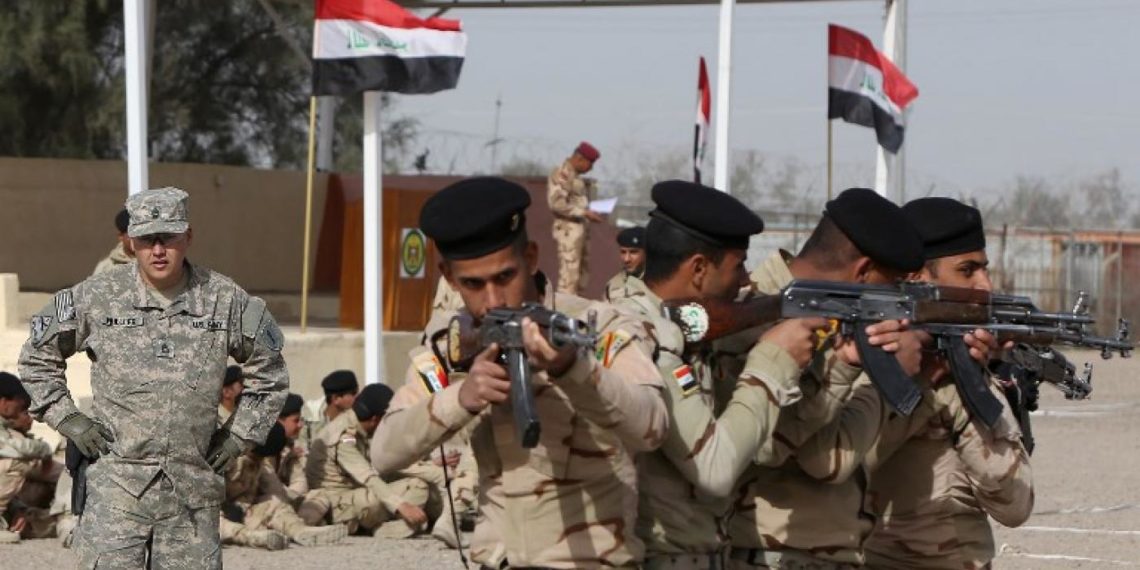NATO’s ruling committee will meet Monday to discuss the future of the alliance’s training mission in Iraq, where lawmakers have called for all U.S. forces to leave after the killing of a top Iranian general.
Ambassadors from the 29 allies will gather at their Brussels headquarters at 3.00 pm (1400 GMT) with Secretary General Jens Stoltenberg expected to brief journalists afterward.
U.S. officials are due to give an update on the situation after Washington killed Qasem Soleimani, head of Iran’s Middle East operations as commander of the Revolutionary Guards’ Quds Force, in a U.S. drone strike at Baghdad airport.
NATO has suspended its operations in Iraq, where it maintains a 500-strong training mission preparing local forces to take on Islamic State group extremists.
“The big issue is the future of the NATO mission in Iraq after the demand of the Iraqi parliament yesterday to remove US-led coalition and foreign forces. We have to see what we will do now,” a NATO diplomat told AFP.
The U.S. has maintained a troop presence in Iraq since 2003, when it launched a major invasion to topple the regime of Saddam Hussein.
Hundreds of thousands of Iraqis, mostly civilians, have been killed in the fighting and instability that has gripped the country since.
Another NATO diplomat said the alliance would have to “wait and see” how Baghdad responds in the coming days.
“From our point of view the parliament resolution is not binding. We take note of it, but have to wait what the government is going to do,” the diplomat said.
Trump earlier vowed to hit Iraq with sanctions “like they’ve never seen before” if U.S. troops are forced to leave the country.
The threat of sanctions “is not very helpful,” German Foreign Minister Heiko Maas said Monday.
“I don’t think you can convince Iraq with threats, but with arguments,” Maas told Deutschlandfunk radio.
Verge of War?
Trump also threatened massive retaliation against Iran if it responds militarily to the assassination of Soleimani.
In particular, Trump threatened to target civilian and cultural sites in Iran, which would be a violation of international law and a serious war crime.
On Monday, U.S. Speaker of the House Nancy Pelosi announced the chamber would vote on a war powers resolution introduced by Rep. Ro Khanna that would prohibit Trump from attacking Iran without express authorization from Congress.
Under the U.S. Constitution, the legislature has the sole responsibility to decide if the country goes to war, though the executive branch has increasingly assumed de facto war powers in recent decades.
Targeting cultural sites in Iran is a violation of the 1954 Hague Convention to which we are a party.
We must exercise our power of the purse and defund any offensive action against Iran or Iranian officials. pic.twitter.com/TaRWoP7j7W
— Rep. Ro Khanna (@RepRoKhanna) January 6, 2020
Presidential candidate Bernie Sanders has also introduced an accompanying resolution in the Senate. Though that chamber is controlled by Republicans allied with Trump, the resolution is “privileged,” meaning Majority Leader Mitch McConnell will be forced to schedule a vote on it in upcoming weeks.
While Iran has not, of yet, responded militarily to the killing of its general, it announced Sunday that it will no longer abide by any limits of its nuclear activity outlined in the landmark 2015 nuclear agreement.
Trump unilaterally withdrew the U.S. from the accord early in his presidency and reimposed crippling sanctions on Iran that have badly damaged its economy and caused hardship for Iranian civilians.
https://twitter.com/sonofnariman/status/1213792565075550208?s=20
Though Iran continued to be in compliance with the terms of the agreement after the U.S. withdrawal, it has more recently been slowly walking back some of its commitments in an effort to pressure Europe for sanctions relief.
Though Iran will continue to allow international inspections of its nuclear facilities, Sunday’s announcement has been viewed as worrisome development that significantly increases the prospect of a major war.
“IRAN WILL NEVER HAVE A NUCLEAR WEAPON!,” Trump tweeted Monday.
But with the nuclear accord in tatters, war may be the only way to stop Iran from obtaining a weapon if it indeed decides to pursuit one.
The Globe Post’s Bryan Bowman contributed reporting to this article.





















